- Home
- international
- news
- Inside the isolated Mennonite community in Bolivia where 8 men were accused of raping more than a hundred women and girls, the horrific crime that inspired the film 'Women Talking'
Inside the isolated Mennonite community in Bolivia where 8 men were accused of raping more than a hundred women and girls, the horrific crime that inspired the film 'Women Talking'
Lauren Frias

- "Women Talking" tells the story of women in a religious colony grappling with a series of sexual assaults, based on a 2018 book of the same name.
- The book, written by Miriam Toews, is inspired by actual events in Manitoba Colony, a Mennonite community in Bolivia.
The film, "Women Talking," which opened to a limited theatrical release on December 23 and is set for a wider release on January 6, was inspired by actual events that occurred at the Mennonite community of Manitoba Colony in Bolivia in 2009.

The Sarah Polley-directed drama "Women Talking" tells the story of women in an insular religious colony grappling with a series of sexual assaults that occurred within their Mennonite community.
The film, starring Rooney Mara, Claire Foy, and Frances McDormand, was adapted from the 2018 book of the same name by novelist Miriam Toews, whose fictional story was inspired by the actual events that transpired in the Mennonite community of Manitoba Colony in Bolivia.
In the novel, after a few men are arrested by police, the rest of the men of the colony leave for the city in order to secure their bail. While they are gone, the women gather to decide whether they should stay in the community and fight the men, leave the community, or do nothing.
Toews was also raised in a Mennonite town in Canada before leaving the ultraconservative religious colony when she turned 18, which helped inform her novel.
The Mennonites of Manitoba Colony are a remote religious community of European descent living in Bolivia. They have strict, ultraconservative Christian beliefs and mostly eschew modernity in their practices to preserve their own traditions.
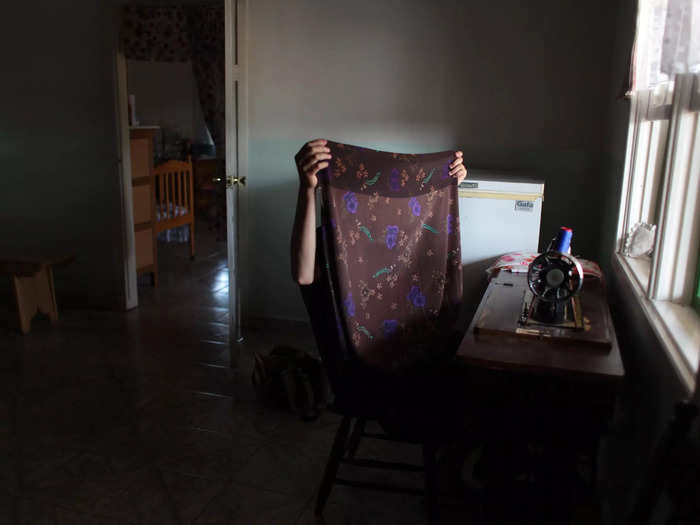
More than 50 years ago, the Mennonites settled in eastern Bolivian farmlands from other colonies in Canada, Mexico, the US, and other countries. At least 60,000 Mennonites live in the country as of 2018.
The Manitoba Colony, located approximately 93 miles outside of Santa Cruz, Bolivia, is a roughly 2,000-person Mennonite community that largely operates away from the rest of the country.
Source: The Walrus, Burn Magazine, National Geographic
In 2009, a group of men were convicted of the rape and sexual assault of more than 100 women and girls in the colony.

Among their religious beliefs, Mennonites are also pacifists who believe in non-violence.
Their ultraconservative ideologies in part fueled the silence of some women and girls, who were sedated with an anesthetic intended for cattle and livestock and sexually assaulted by a group of men in 2009.
"Due to their religious beliefs, they thought something bad, something evil was happening in the colony," Fredy Perez, the prosecutor for the district of Santa Cruz who investigated the crimes, told the BBC.
"In the morning, they had headaches… Women woke with semen on them, and wondered why they were without underwear," Perez continued. "And they didn't discuss it with neighbors in case someone said, 'That house has the devil in it.'"
But eventually, some women began to speak out, and one night in June 2009, a man was caught inside a home and held by other male members of the community. The young man implicated eight others in the assaults — all of whom were Mennonites within the Manitoba Colony, except for one.
Perez remembered a conversation he had with a police officer after the men of the colony reported them.
"He told me, 'Doctor, some Mennonites have brought men here who they're saying are rapists,'" Perez said. "The image we have of Mennonites in Bolivia is that they work from six in the morning until nine at night, they're very religious, and they don't dance or get drunk. So when I got that call from the officer, I just couldn't believe it."
In August 2011, seven were sentenced to 25 years in prison at Palmasola, a prison complex in Bolivia. An eighth man got 12 years for supplying the anesthetic drug and has since been granted conditional release.
Source: BBC, Time Magazine
Though the sexual assaults in 2009 rocked the community and marred its history, life has since seemingly returned to normal in the colony.
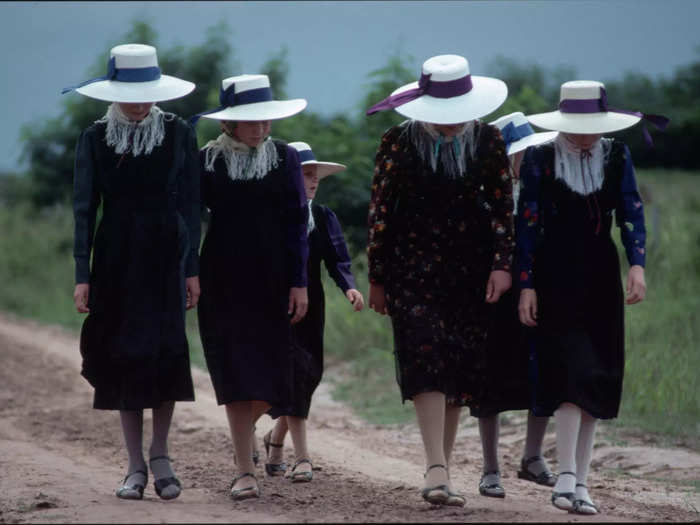
Source: Burn Magazine
Mennonite children attend classes, where they study German, math, and religion.
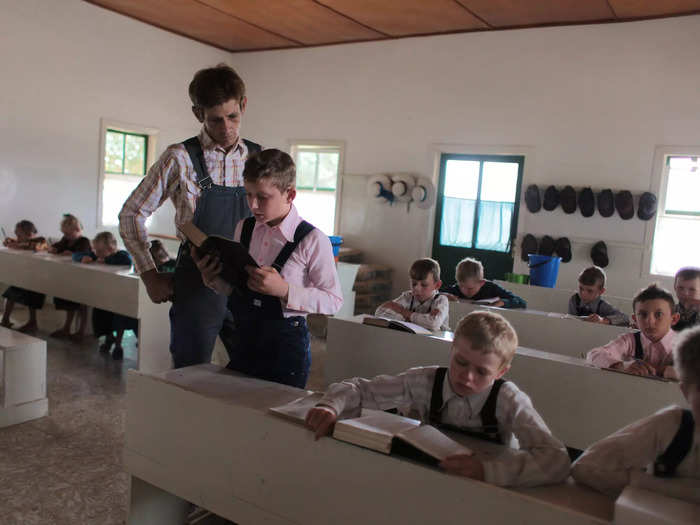
Members of the colony speak Low German, a dialect dating back to the 16th century.
Despite being situated in South America, women are discouraged from learning Spanish, while men learn the language for means of trade outside of the colony in Santa Cruz.
Source: The Walrus, BBC
Outside of classes, Mennonite children play in the farmlands of the colony.
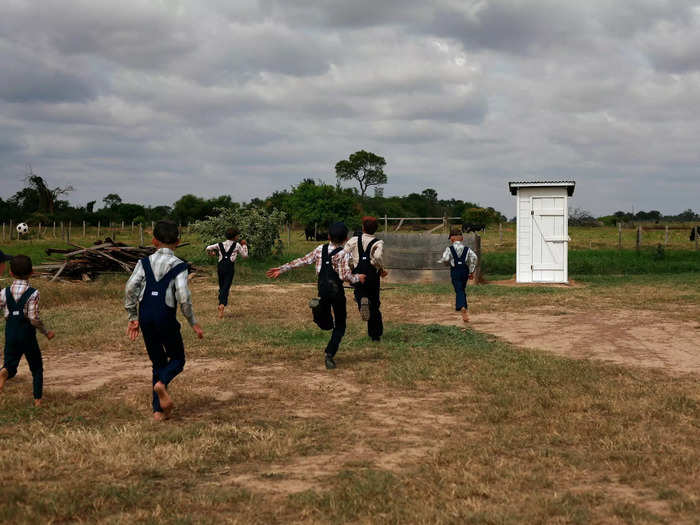
They also help their parents with household chores and on the farm.
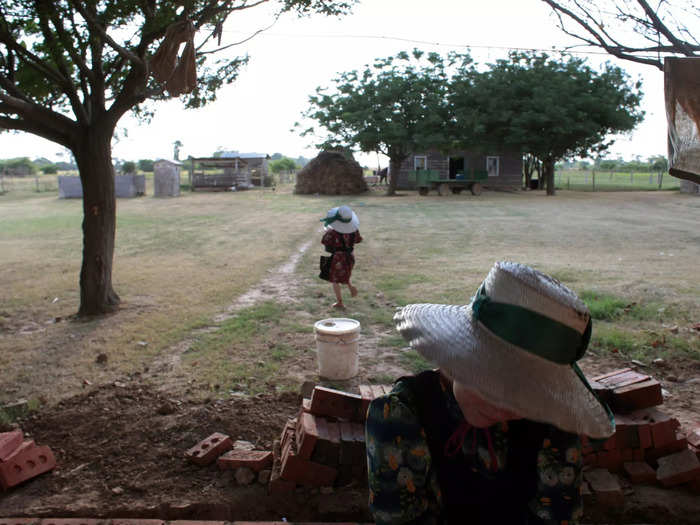
Mennonites in Bolivia largely reject modern conveniences and amenities, like cars and electricity.
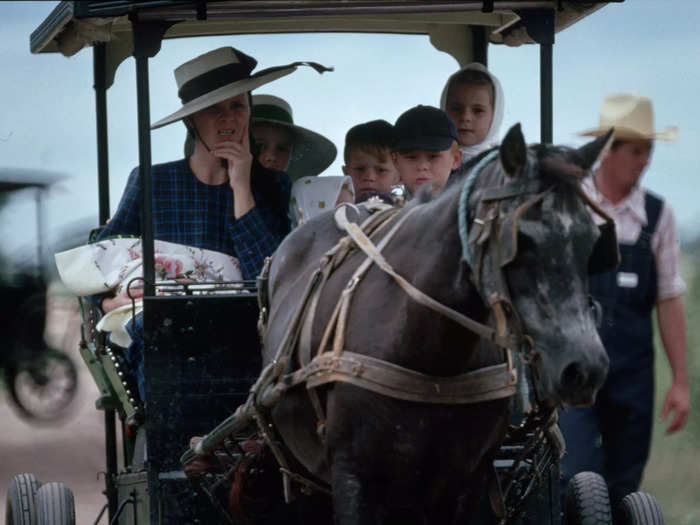
Some colonies make exceptions, for example, by using tractors to sow the fields. The conditions of permitted tractors differ from colony to colony, with some preferring to use older models with iron wheels, or refusing to use ones with rubber wheels unless they are going into the city.
Source: National Geographic
Women and girls wear their hair in traditional braids and don mid-length dresses.
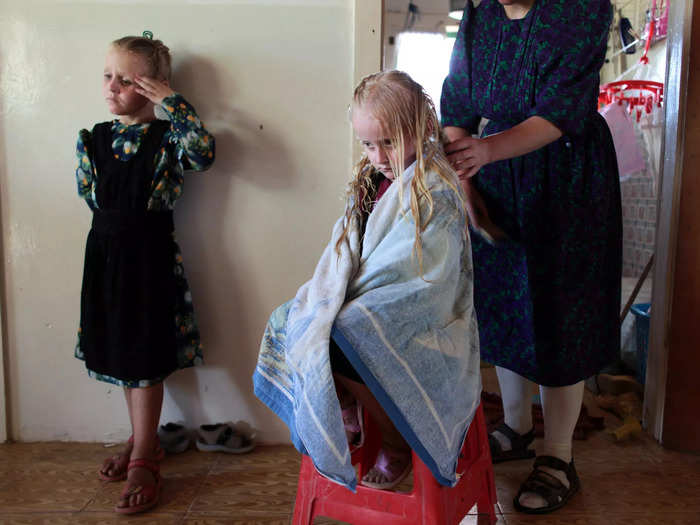
Their days, though simple in nature, are filled with intensive labor segregated by gender.
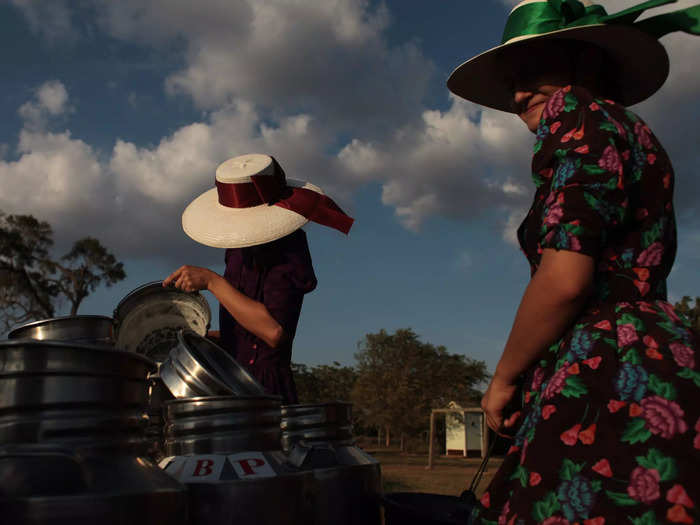
Women and girls are tasked with household tasks like cooking and cleaning.
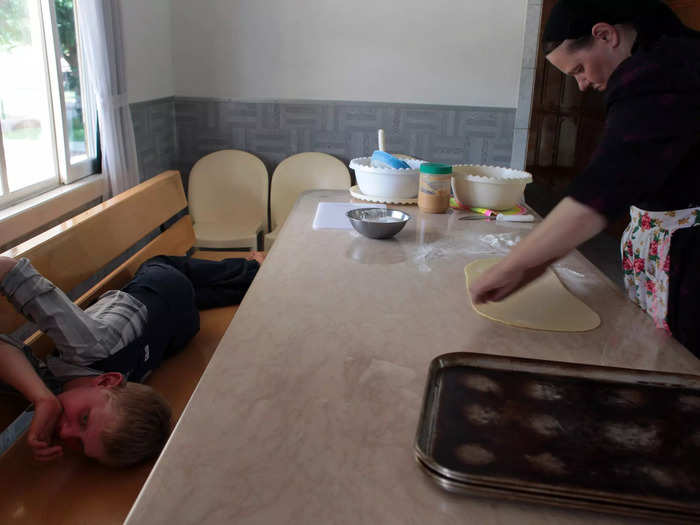
Boys and young men join their fathers in the fields and factories.
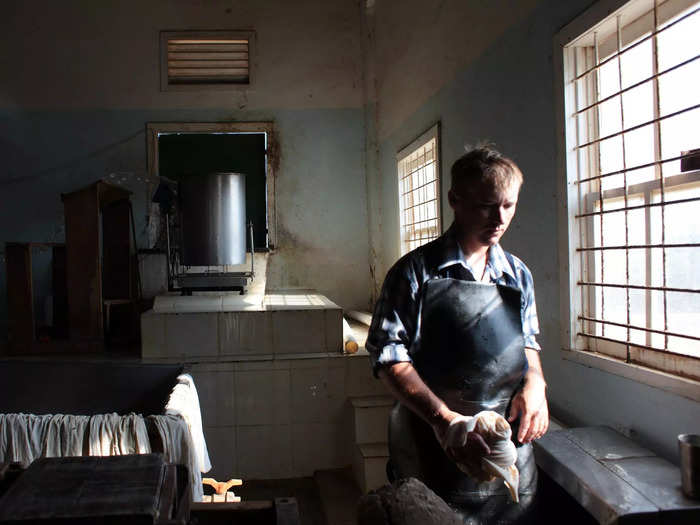
Photography, however, is forbidden in nearly all colonies, only allowed if trust is earned by the person behind the camera.
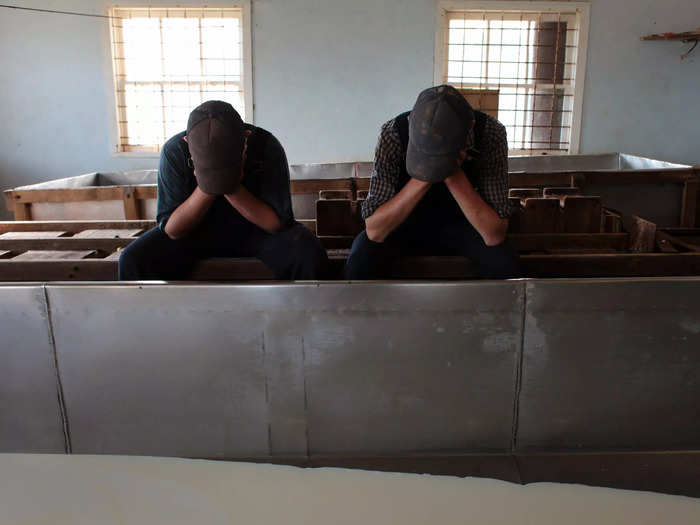
Over the course of a decade, photographer Jordi Busqué observed and captured the way of life of Mennonite colonies across Bolivia.
In a 2018 photo essay for National Geographic, Busqué likened the Mennonites' reaction to him taking out his camera as if he was pulling out a gun. He said he would help out in the fields to earn their trust, even once almost losing his hand and life in a tractor accident, in exchange for a few photos so not to disrupt their way of life.
Photographer Lisa Wiltse witnessed a similar reluctance from members of the Manitoban Colony when she visited in the aftermath of the 2009 assaults.
"The men she encountered were hospitable but wary, and the women were reluctant to pose for photographs; since many Manitobans blamed the rapes on external forces, they were even more distrustful of the outside world," according to a 2010 article published in Canadian magazine, The Walrus. "But their younger sisters and daughters were less cautious."
"By the end of her stay, girls who had once covered their faces at the sight of her camera confronted the lens, smiling communicatively even though they couldn't speak her language."
Source: National Geographic, The Walrus
Popular Right Now
Popular Keywords
Advertisement